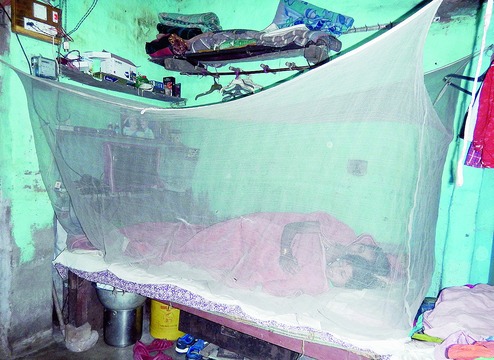
Cuttack: The mosquito density here has gone up to 65, bringing under lens the municipal corporation's steps to control the sting.
City health officer Manas Ranjan Samantaray on Friday said the mosquito density had gone up to 65 in February from less than 60 calculated in December.
The density is calculated on the basis of the number of mosquitoes caught by 10 people in an hour by using an aspirator.
According to the Cuttack Municipal Corporation's health wing officials, a mosquito density of around 30 is said to be normal, while 40 is considered moderate and beyond 40 is high.
Though the corporation claims that it has done everything to curb the menace, the increase in mosquito density exemplifies that the civic body's fogging drive has not yielded the desired result.
"Keeping in view an urgent need to conduct fogging procedures in an effective manner, we have intensified the activity in all the 59 wards with one portable machine for each ward from this week. It will continue till the February end," Samantaray said.
The health officer conceded that the fogging operations had not been effective in January as they were limited to the main roads of all the wards with one fogging machine-mounted vehicle in use.
Residents in various parts of the city said they had not seen a fogging machine in their area for several months. Bihari Bag resident Dilip Kumar Mohapatra said: "We want the fogging drive in our area to control the mosquito problem." Bidanasi resident Satyajit Roy said: "We suffer mosquito bites not only during the night, but also during the day. The problem is severe - both indoors and outdoors."
The Opposition accused the BJD-led corporation of not tackling the issue effectively.
"Fogging is done just for the sake of doing it. The civic administration is yet to give required attention to potential breeding sites. Cleaning of drains were also not taken up in time," said Congress councillor Giribala Behera.
However, chairman of the civic body's standing committee for sanitation and health Ranjan Kumar Biswal said the density of mosquitoes increased between December-March as it was their breeding period.
"Apart from intensive fogging operations in all the 59 wards, we are destroying the breeding sites of mosquitoes near the industrial areas, commercial centres and other public places by spraying of larvicide oil," Biswal said.










